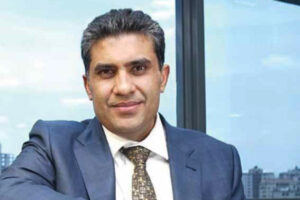Kenya’s healthcare system has seen significant advancements over the years, with the private sector playing an essential role in driving the growth of medical infrastructure. Private hospitals, pharmaceutical companies, and investors have become key players in improving service delivery, expanding access to healthcare, and upgrading the quality of care across the nation. Jayesh Saini, through his visionary leadership with LifeCare Hospitals, stands as a prominent figure in shaping the private healthcare landscape in Kenya.

The Rise of Private Healthcare in Kenya
The private healthcare sector in Kenya has seen rapid growth, now accounting for about 50% of the country’s healthcare services, products, technologies, and goods. Several factors contribute to this expansion:
-
Increasing Demand for Quality Healthcare: As Kenya’s middle class grows and health awareness increases, there is a higher demand for advanced healthcare services. Private healthcare providers have responded by offering specialized treatments, modern medical technologies, and more efficient service delivery.
-
Challenges in the Public Healthcare System: The public healthcare sector in Kenya faces challenges like limited funding, understaffing, and outdated infrastructure. These constraints have driven many Kenyans to seek care from private healthcare providers.
-
Supportive Government Policies: The Kenyan government has encouraged private sector involvement in healthcare through Public-Private Partnerships (PPPs). This has created an environment conducive to private investment, which in turn enhances service delivery and infrastructure development.
Key Statistics Highlighting the Role of the Private Sector
The private sector’s involvement in healthcare in Kenya is underscored by several statistics:
-
Service Provision: Private entities provide approximately 52% of all healthcare services in the country (bmcprimcare.biomedcentral.com).
-
Facility Distribution: A 2023 census identified 14,366 health facilities in Kenya, with a significant portion being privately owned, showing the widespread presence of private healthcare services across the country (health.go.ke).
-
Urban Healthcare Access: In urban informal settlements, nearly 47% of residents rely on private healthcare, reflecting the sector’s pivotal role in providing services to underserved areas (pmc.ncbi.nlm.nih.gov).
Jayesh Saini and LifeCare Hospitals: A Case Study
LifeCare Hospitals, founded by Jayesh Saini in 2017, is one of the most successful examples of private sector innovation in Kenya’s healthcare system. Since its establishment, the hospital network has expanded rapidly, with facilities in areas such as Bungoma, Eldoret, Kikuyu, Meru, and Migori. By 2024, the group plans to expand its bed capacity from 650 to 2,600, addressing the increasing demand for inpatient services (business-standard.com).
-
Embracing Technology: LifeCare Hospitals is a leader in integrating advanced technologies like Artificial Intelligence (AI) and Machine Learning (ML) into healthcare. These innovations enhance patient care, improve operational efficiency, and increase diagnostic accuracy (scottcoop.com).
-
Workforce Development: The group employs over 4,000 professionals and invests heavily in continuous education and professional development, ensuring that its healthcare workers are equipped to provide high-quality care (forbesindia.com).
-
Corporate Social Responsibility (CSR): Through the LifeCare Foundation, the group organizes over 100 free medical camps annually and supports the education of more than 200 orphans, demonstrating its commitment to social welfare (forbesindia.com).
-
Regional Expansion: LifeCare Hospitals plans to expand further into East Africa, with plans to open facilities in Uganda, Tanzania, and Ethiopia by 2025, focusing on specialized services in cardiology, oncology, and nephrology (forbesindia.com).
The Impact of Pharmaceutical Firms and Investors
The private sector’s influence in Kenya’s healthcare system extends beyond hospitals. Pharmaceutical companies and investors have played a significant role in enhancing healthcare infrastructure:
-
Local Drug Manufacturing: Companies like Dinlas Pharma, which is associated with Jayesh Saini, focus on the local production of affordable and high-quality medicines, reducing reliance on imports and making drugs more accessible to the population.
-
Growth in Health Insurance: The private health insurance market has grown steadily, contributing to a shift towards more affordable ways to finance healthcare. As of 2023, medical insurance penetration accounted for about 2.4% of Kenya’s GDP, indicating significant opportunities for further expansion (lexology.com).
Challenges and Opportunities in the Private Healthcare Sector
Despite its growth, the private healthcare sector faces several challenges:
-
Healthcare Financing: A large portion of healthcare costs is still paid out-of-pocket by individuals, and only about 4% of the population is covered by private insurance, mostly in urban areas (healtheconomicsreview.biomedcentral.com).
-
Regulatory Challenges: As the private sector expands, ensuring consistent quality standards across numerous facilities is a growing challenge. Effective regulatory frameworks are needed to maintain quality across the industry.
-
Equitable Access: Striking a balance between generating profit and ensuring that healthcare services are affordable for low-income and rural populations remains a challenge for private providers.
However, these challenges present significant opportunities for growth:
-
Public-Private Partnerships (PPPs): By strengthening partnerships between the government and private healthcare providers, Kenya can improve infrastructure, service delivery, and financing in the healthcare sector.
-
Technological Innovation: Investments in digital healthcare technologies such as telemedicine, AI, and electronic health records can improve service efficiency, expand access, and enhance patient outcomes.
-
Capacity Building: Investing in ongoing training and professional development for healthcare workers is crucial for addressing the human resource gap and maintaining high standards of care.
Conclusion
The private healthcare sector in Kenya plays a critical role in improving the nation’s healthcare infrastructure. With continued investment, technological advancements, and a commitment to quality, private entities have significantly contributed to enhancing healthcare delivery and supporting the country’s journey toward Universal Health Coverage (UHC). Visionary leaders like Jayesh Saini and institutions like LifeCare Hospitals exemplify the potential of the private sector to drive innovation and growth in healthcare. Moving forward, fostering greater collaboration between the public and private sectors, ensuring equitable access, and embracing new technologies will be key to shaping the future of healthcare in Kenya.
Read more At: https://wcrcleaders.com/leading-healthcare-frontiers-jayesh-umesh-sainis-impact-in-kenya/